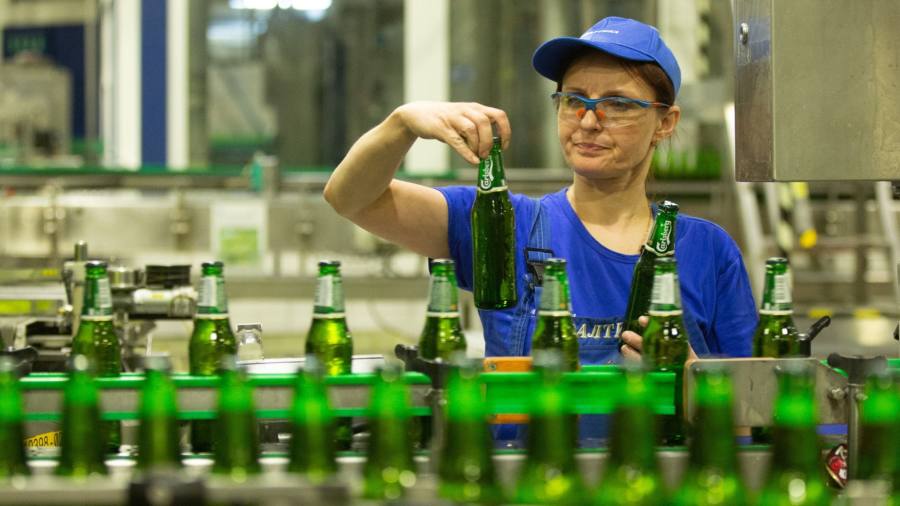Receive free Carlsberg AS updates
We’ll send you a myFT Daily Digest email rounding up the latest Carlsberg AS news every morning.
Carlsberg has reached an agreement to sell its business in Russia more than year after the brewer announced its intention to dispose of the assets following Moscow’s invasion of Ukraine.
The Danish group, which had more exposure to the market than any other international brewer, previously warned it would suffer a $1.4bn writedown from the sale. It did not name the buyer of the business on Friday, or provide any financial details on the sale.
Carlsberg, which owns Russia’s biggest and most popular beer brand, Baltika, earned 9 per cent of its total revenue in the country. Chief executive Cees ’t Hart said the agreement was an important milestone in the “highly complex separation and selling process”.
“While it has been an extensive process, it has been important for us to reach the best possible solution for all stakeholders, including our more than 8,000 employees in Russia,” said Hart.
The transaction will be subject to approvals by the Russian government, said the company.
Since last year, western companies seeking to leave Russia have had to meet an ever-expanding set of onerous criteria in order to be considered by the government sub-commission that issues exit permits.
These criteria include offering Russian buyers a discount of at least 50 per cent of the asset’s value and making a “voluntary” contribution of 5 to 10 per cent of the sale price to the budget.
Carlsberg may have to wait months before receiving the government approval because the sub-commission is overwhelmed with thousands of applications, according to people familiar with the matter.
Many Western consumer goods companies announced their intention to exit the country after the invasion last year, but many continue to sell products in Russia, citing the difficulty of unwinding operations and regulatory hurdles.
According to estimates by the Kyiv School of Economics, only 7.5 per cent of foreign companies have completely withdrawn from Russia, while 37 per cent have announced their exit and 41 per cent remain in the country, with some seeing their market share grow.
“With many competitors leaving the market earlier, 2022 was a great year for Baltika: its revenues increased by 20 per cent year-on-year and its net profit almost doubled,” said Ivan Fedyakov, CEO of Infoline analytical company.
Belgian brewer Anheuser-Busch InBev is in talks to sell its stake in its Russia-Ukraine joint venture to its Turkish partner Anadolu Efes. AB InBev reported a $1.1bn non-cash impairment relating to the deal in its first-quarter results last year. The joint venture employed around 3,500 people across 11 breweries in Russia.
Heineken expects to record €400mn in a non-cash impairment charge when it exits Russia. The Dutch brewer said in a recent trading update, that it had made progress transferring ownership of the business and had submitted application for approval to the Russian authorities, without specifying a timeline or buyer. Heineken employs 1,800 people and makes 2 per cent of its global sales in the country.
Carlsberg, which also brews Kronenbourg, Grimbergen and Somersby cider, first bought a stake in Baltika in 2000 and became the majority shareholder in 2008, before fully acquiring and delisting the group.
Cees ’t Hart told the FT earlier this year that he wanted to insert a buyback clause into the agreement in order to give his successors the chance to return to Russia, depending on the state of the country in 10-20 years.
Read the full article here




